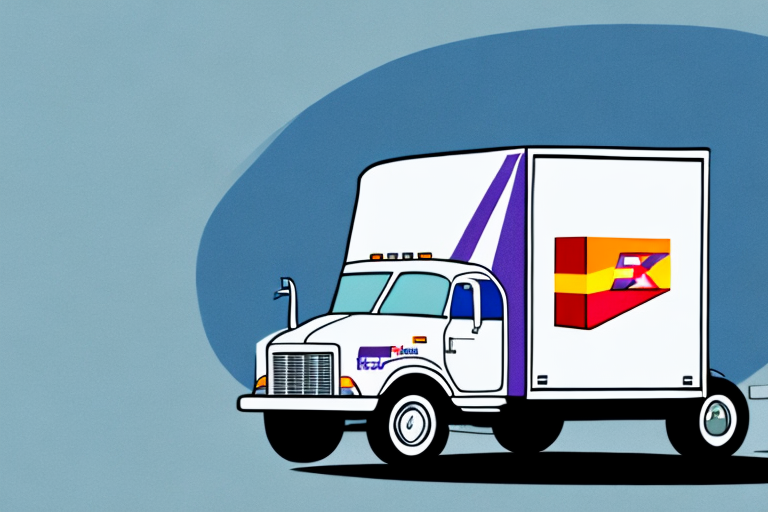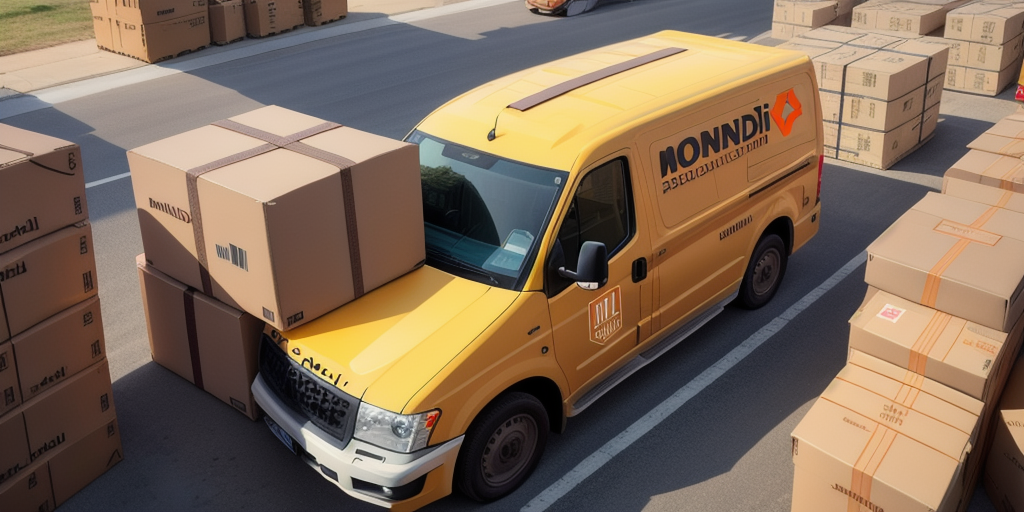How Is FedEx Still in Business? A Comprehensive Analysis of the Company's Successful Strategies
FedEx Corporation, founded by Frederick W. Smith in 1971, has established itself as a global leader in the logistics and courier services industry. With operations spanning over 220 countries and territories, FedEx's sustained success can be attributed to a blend of innovative strategies, advanced technology, strong branding, and a commitment to sustainability. This article delves into the key strategies that have propelled FedEx to its current standing and explores how the company continues to adapt in a dynamic market.
1. The History and Evolution of FedEx
From a College Idea to a Global Powerhouse
FedEx began as an ambitious concept by Frederick W. Smith, who outlined the idea of an overnight delivery service in his college paper. Recognizing the potential gap in the market, Smith launched Federal Express in 1971, introducing the hub-and-spoke system that revolutionized package sorting and delivery efficiency.
Despite early challenges such as financial constraints and operational hurdles, FedEx persisted by adopting innovative solutions. By the 1980s, the company had expanded its services beyond overnight shipping to include ground delivery, international shipping, and comprehensive logistics solutions.
Milestones and Growth
- 1981: Introduction of the first barcode scanner, enhancing package tracking capabilities.
- 1994: Launch of FedEx.com, enabling online package tracking and label printing.
- 2000s: Expansion into global markets and diversification of services.
- 2020: Commitment to achieving carbon-neutral operations by 2040.
Today, FedEx stands as a testament to perseverance and continuous innovation, maintaining a dominant presence in the global logistics landscape.
2. Key Strategies Driving FedEx's Success
Innovation as a Core Driver
Innovation has been integral to FedEx's enduring success. The company's investment in cutting-edge technologies, such as drones and autonomous vehicles, positions it at the forefront of the logistics industry. In 2019, FedEx partnered with Walmart to pilot autonomous grocery deliveries, showcasing its commitment to leveraging technology for improved service delivery.
According to Statista, FedEx holds approximately 6% of the global express delivery market, a testament to its innovative approach.
Strong Branding and Market Recognition
FedEx's branding strategy emphasizes reliability and speed, embodied in its iconic logo and the well-known slogan "The World on Time." This strong brand identity fosters customer trust and loyalty, making FedEx synonymous with dependable shipping services.
Effective branding has allowed FedEx to differentiate itself in a competitive market, enhancing its appeal to both individual consumers and large enterprises.
Advanced Technology Integration
FedEx leverages sophisticated technologies to optimize its operations. The company's advanced tracking systems provide real-time updates, ensuring transparency and efficiency in package delivery. Additionally, FedEx utilizes data analytics to refine delivery routes, reduce costs, and enhance customer experience.
In recent developments, FedEx has been exploring the use of artificial intelligence and machine learning to predict and manage demand fluctuations, further streamlining its logistics processes.
Efficient Logistics and Distribution Networks
The backbone of FedEx's success lies in its robust logistics and distribution networks. The hub-and-spoke model allows for centralized sorting and streamlined distribution, minimizing delivery times and operational costs. FedEx's investment in automated warehouses and robotics technology enhances the efficiency and accuracy of its sorting processes.
According to Forbes, FedEx's logistics efficiency has been a key factor in maintaining its competitive edge, even amid increasing global shipping demands.
Strategic Partnerships and Collaborations
FedEx strategically partners with major global brands to expand its reach and service offerings. Collaborations with companies like Amazon have enabled FedEx to tap into the booming e-commerce sector, providing tailored logistics solutions that cater to the specific needs of online retailers.
These partnerships not only enhance FedEx's service portfolio but also open up new revenue streams, reinforcing its market position.
Employee Training and Development
FedEx invests significantly in employee training and development programs, recognizing that its workforce is crucial to delivering high-quality services. Initiatives like the Purple Promise program focus on customer service excellence and professional development, fostering a culture of continuous improvement and employee loyalty.
By prioritizing employee growth, FedEx ensures a skilled and motivated workforce capable of driving the company's success.
Sustainability and Corporate Responsibility
FedEx is committed to sustainability, setting ambitious goals to reduce its carbon footprint and invest in alternative fuel vehicles. The company aims to achieve carbon-neutral operations by 2040, investing in electric vehicles, renewable energy sources, and eco-friendly packaging solutions.
Beyond environmental initiatives, FedEx engages in various corporate responsibility programs, including disaster relief efforts and community outreach, underscoring its dedication to social responsibility.
3. Overcoming Industry Challenges
Adapting to Economic Downturns
FedEx has demonstrated resilience in the face of economic challenges, such as the 2008 financial crisis. By implementing cost-cutting measures, streamlining operations, and diversifying its service offerings, FedEx successfully navigated these downturns, maintaining its operational stability and market position.
Responding to the Rise of E-commerce
The exponential growth of e-commerce has reshaped the logistics industry. FedEx has responded by expanding its ground network and enhancing its e-commerce capabilities, ensuring faster delivery times and improved customer satisfaction. Innovations like in-store pickups and same-day delivery options cater to the evolving demands of online shoppers.
As reported by The Wall Street Journal, FedEx's strategic investments in e-commerce infrastructure have solidified its position as a preferred logistics partner for online retailers.
4. Future Prospects and Strategies
Expanding E-commerce Capabilities
Looking ahead, FedEx plans to further enhance its e-commerce services by integrating more advanced technologies and expanding its global reach. Investments in automation and artificial intelligence are expected to drive efficiencies and support the growing demands of the online retail sector.
Embracing New Technologies
FedEx is at the forefront of adopting emerging technologies to enhance its delivery services. The exploration of drone deliveries and autonomous vehicles aims to reduce delivery times and operational costs, positioning FedEx as an innovator in the logistics industry.
Continued Commitment to Sustainability
FedEx's sustainability initiatives will remain a priority, with ongoing investments in renewable energy, electric vehicle fleets, and sustainable packaging solutions. These efforts not only mitigate environmental impact but also align with increasing consumer demand for eco-friendly business practices.
According to FedEx's Sustainability Report 2023, the company has made significant progress towards its environmental goals, reinforcing its commitment to a sustainable future.
5. Competitive Landscape and FedEx's Position
Comparative Analysis with Major Competitors
FedEx operates in a highly competitive landscape, facing formidable rivals like DHL and UPS. To maintain its market leadership, FedEx differentiates itself through superior logistics efficiency, advanced technological integration, and strong brand recognition.
While DHL emphasizes global reach and UPS focuses on reliability, FedEx leverages its comprehensive service portfolio and innovative approach to stay ahead. According to Statista, FedEx holds a significant share of the global express delivery market, reflecting its competitive strength.
Strategic Differentiators
- Advanced Tracking Systems: Real-time package tracking enhances transparency and customer trust.
- Innovative Delivery Solutions: Adoption of drones and autonomous vehicles improves delivery efficiency.
- Comprehensive Service Offerings: Diverse logistics services cater to a wide range of customer needs.
- Strong Brand Identity: Recognizable branding fosters customer loyalty and market presence.
These differentiators enable FedEx to maintain a robust competitive edge, even in a saturated market.
6. Excellence in Customer Service
Customer-Centric Approach
FedEx prioritizes customer satisfaction through a customer-centric approach, offering customized solutions and reliable services. The company's robust customer support infrastructure ensures that client needs are met promptly and efficiently.
Innovative Service Offerings
To enhance the customer experience, FedEx continuously develops innovative service offerings such as same-day delivery, customizable delivery options, and comprehensive tracking features. These services cater to the diverse and evolving needs of consumers and businesses alike.
Loyalty and Retention
FedEx's commitment to excellence in customer service has resulted in a loyal customer base. High levels of customer satisfaction translate into repeat business and positive word-of-mouth, driving sustained revenue growth.
Conclusion
FedEx's enduring success is the culmination of strategic innovation, technological advancement, efficient logistics, strong branding, and a commitment to sustainability and corporate responsibility. By continuously adapting to market changes and investing in future-ready solutions, FedEx has not only maintained its competitive edge but also set benchmarks in the logistics industry. As the company navigates the complexities of a rapidly evolving market, its foundational strategies and forward-thinking approach position it for continued growth and leadership in the global logistics arena.






















